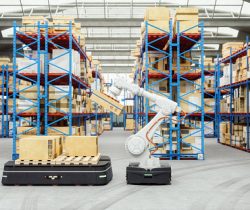Spring 2024

The Linear Control Systems course delves into the fascinating world of feedback control. It introduces students to fundamental concepts such as linear systems, transfer functions, and Laplace transforms. These tools enable engineers to analyze and design control systems for a wide range of applications. The course emphasizes stability, feedback, and transient response specifications.

Artificial Intelligence (AI) has revolutionized robotic control, bridging the gap between mechanical systems and computational prowess. By integrating AI, robots gain the ability to perceive their environment through computer vision, learn from experience, make autonomous decisions, and adapt to dynamic scenarios.
Fall 2023
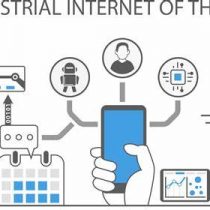
This course goes beyond the hype of consumer IoT to emphasize a much greater space for potential embedded system applications and growth.
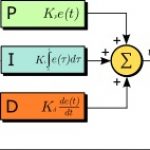
Mechatronics, also called mechatronics engineering, is an interdisciplinary branch of engineering that focuses on the integration of mechanical, electronic and electrical engineering systems, and also includes a combination of robotics, electronics, computer science, telecommunications, systems, control, and product engineering.
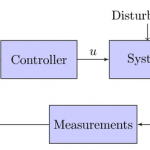
This course is to explore the modeling of linear dynamic systems via differential equations and transfer functions utilizing state-space and input-output representations.
Spring 2023
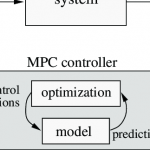
Model predictive control (MPC) is an advanced method of process control that is used to control a process while satisfying a set of constraints.
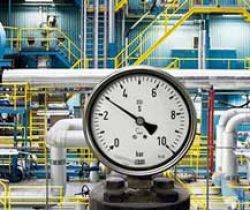
The main goal of an Industrial Instrumentation course for engineering students are shaped by a variety of applications including control, quality assurance, performance testing, design and research.
Winter 2022
(Current Semester)
Fall 2021

Model predictive control (MPC) is an advanced method of process control that is used to control a process while satisfying a set of constraints.

Mechatronics, also called mechatronics engineering, is an interdisciplinary branch of engineering that focuses on the integration of mechanical, electronic and electrical engineering systems, and also includes a combination of robotics, electronics, computer science, telecommunications, systems, control, and product engineering.

This course is to explore the modeling of linear dynamic systems via differential equations and transfer functions utilizing state-space and input-output representations.
Spring 2021

The main goal of an Industrial Instrumentation course for engineering students are shaped by a variety of applications including control, quality assurance, performance testing, design and research.

This course goes beyond the hype of consumer IoT to emphasize a much greater space for potential embedded system applications and growth.
Fall 2020
(Current Semester)

Model predictive control (MPC) is an advanced method of process control that is used to control a process while satisfying a set of constraints.

This course provides the fundamentals in modern control theory - centered around the so-called state space methods - as a continuation of classical control theory taught in Linear Control Theory.

This course is to explore the modeling of linear dynamic systems via differential equations and transfer functions utilizing state-space and input-output representations.
Winter 2020
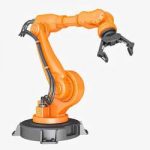
This course goes beyond the hype of consumer IoT to emphasize a much greater space for potential embedded system applications and growth.

The main goal of an Industrial Instrumentation course for engineering students are shaped by a variety of applications including control, quality assurance, performance testing, design and research.
Fall 2019

Model predictive control (MPC) is an advanced method of process control that is used to control a process while satisfying a set of constraints.

This course provides the fundamentals in modern control theory - centered around the so-called state space methods - as a continuation of classical control theory taught in Linear Control Theory.
Spring 2019

This course goes beyond the hype of consumer IoT to emphasize a much greater space for potential embedded system applications and growth.

The main goal of an Industrial Instrumentation course for engineering students are shaped by a variety of applications including control, quality assurance, performance testing, design and research.

This course is a comprehensive introduction to control system synthesis in which the digital and mini computer plays a major role, reinforced with hands-on laboratory experience.
Fall 2018

This course goes beyond the hype of consumer IoT to emphasize a much greater space for potential embedded system applications and growth.

This course provides the fundamentals in modern control theory - centered around the so-called state space methods - as a continuation of classical control theory taught in Linear Control Theory.

This course is a comprehensive introduction to control system synthesis in which the digital computer plays a major role, reinforced with hands-on laboratory experience. The course covers elements of real-time computer architecture and IoT based control.

This course is a continuation of Electronic Circuits for advanced instrumentation I. It covers several topics from analog and digital integrated circuits.
Spring 2018

This course introduces students to the basic components of electronics: diodes, transistors, and op amps. It covers the basic operation and some common applications.

This course is a continuation of Electronic Circuits for advanced instrumentation I. It covers several topics from analog and digital integrated circuits.

This course is a comprehensive introduction to control system synthesis in which the digital computer plays a major role, reinforced with hands-on laboratory experience. The course covers elements of real-time computer architecture and IoT based control.

This course goes beyond the hype of consumer IoT to emphasize a much greater space for potential embedded system applications and growth.

The main goal of an Industrial Instrumentation course for engineering students are shaped by a variety of applications including control, quality assurance, performance testing, design and research.

In the codelabs-based Android Developer Fundamentals (V2) training, the students learn basic Android programming concepts using the Java programming language, and you build a variety of apps.
Amirkabir University (Winter 2017):
Digital Control
Advanced Robotics
BAQ University (Fall 2016):
Medical Instrumentations and Devices
SH University (Fall 2016):
Electronics 1
Electronics 2
Advanced Concepts in Computer Programming
Robotics
Amirkabir University (Spring 2016):
Computer and Digital Control
Shariaty University (2016):
Electronics 1
Computer Architecture
Advanced Concepts in Computer Programming
Electronics 2
Altium Designer
Shariaty University (2015):
Electronics 1
Advanced Concepts in Computer Programming
Computer Architecture
Amirkabir University of Tech. (2015):
Neural Networks
Robotics
Digital Control
Amirkabir University of Tech. (2014):
Linear Control
Digital Control
Computer Control (Birmingham)
Qazvin University (2014):
Neural Networks
Distributed Control Systems
Linear Control
Amirkabir University of Tech. (2013):
Advanced Robotics
Medical Robotics
Modern Control
Linear Control
Amirkabir University of Tech. (2013):
Robotics and Control
Advanced Robotics and Control
Instrumentation
Amirkabir University of Tech. (2012):
Adaptive Control(2012-2013)
Automation(2012-2013)
Controller Design for Robots
Industrial Control
Instrumentation
Qazvin University (2012):
Instrumentation
Industrial Control
Amirkabir University of Tech. (2011):
Automation
Amirkabir University of Tech. (2010):
Automation
Artificial Intelligence
Digital And Nonlinear Control
